Kursk battle. Glance from Germany
A small lecture by the historian Roman Töppel, Kursk 1943, is published on the YouTube channel of the German Tank Museum in Münster. tank battle of World War II? ” In it, the historian summarizes history The Battle of Kursk and related legends. There are no special revelations in the lecture, but it is interesting because it reflects the modern view of the new generation of German historians on this event.
I present a text translation of this lecture.
As illustrations used images from the video.
Slug_BDMP.
Most of those who came to our lecture do not need to explain what the Battle of Kursk is. You know that this was the last major German offensive on the Eastern Front. Surely you know that it was the largest tank battle of the 2 World War II. You also know that this battle marked the beginning of a series of large retreats of the Wehrmacht and that he finally lost the initiative in the east. Yes, the very definition of “The Battle of Kursk” is puzzling to many, since most of the books on this topic are about the “German attack on Kursk in July 1943.” This attack, known as Operation Citadel, was only a prologue to Kursk. the battle. The German side did not speak about the “Battle of Kursk”. German propaganda called these events of the summer of 1943 "the battle between Orel and Belgorod." Many German veterans, whom I asked if they were near Kursk, answered in the negative. They say that in the summer of 43, they participated in the Belgorod Offensive, meaning Operation Citadel - that is, beginning of the Kursk battle.
Initially, the definition of "Battle of Kursk" appeared in the Soviet Union. Soviet historiography divides this event into three phases:
1. Defensive (5.7 - 23.7.1943) - a reflection of the German attack "Citadel";
2. Counter Eagle (12.7 - 18.8.1943) - operation "Kutuzov";
3. Counteroffensive near Kharkov (3.8 - 23.8.1943) - the operation “Commander Rumyantsev”.
Thus, the Soviet side considers the moment of the start of the Kursk Battle of 5 July 1943, and its completion - August 23 - the capture of Kharkov. Naturally, the winner chooses a name, and it was included in international use. The battle lasted 50 days and ended with the defeat of the Wehrmacht. None of the tasks set by the German command was solved.
What were these tasks?
1. German troops were to break through the Soviet defenses in the Kursk area and surround the Soviet troops there. It failed.
2. By cutting off the Kursk bulge, the Germans would have been able to reduce the front line and free up reserves for other sectors of the front. It also failed.
3. The German victory at Kursk was, according to Hitler, a signal to opponents and allies that the German troops in the east could not be defeated in a military way. This hope is also not justified.
4. The Wehrmacht intended to take as many prisoners as possible, which could be used as labor for the German economy. In the battles of 1941, near Kiev, as well as near Bryansk and Vyazma, the Wehrmacht managed to take about 665 thousands of prisoners. In July, 1943 near Kursk was taken only about 40 thousands. This was certainly not enough to make up for the shortage of labor in the Reich.
5. To reduce the offensive potential of the Soviet troops and thus get a breather until the end of the year. This was also not done. Although the Soviet troops suffered huge losses, but the Soviet military resources were so huge that, despite these losses, the Soviet side was able, starting in July 1943, to carry out more and more new attacks along the entire length of the Soviet-German front.
Let's return to the theater of operations. This is the famous "Kursk Bulge", which you, of course, are familiar with.
The German side intended to attack the Kursk with a strike from the north and south for several days to break through the deeply echeloned Soviet defenses, cut off this arc and surround the Soviet troops in this area. The actions of the second phase of the battle unfolded in the direction of Orel - this is the top of the map.
The third phase - the Soviet attack on Kharkov - the lower part of the map.
I will not devote my lecture not to the actual battles, but to numerous, still existing legends associated with this battle. The source of many of these legends are memoirs of warlords. Although historical science for many decades trying to deal with them, nevertheless, these legends are firmly rooted. Many authors do not pay attention to the latest research, but continue to draw information from memoirs. In my short speech, I can’t touch all the misconceptions about the Battle of Kursk and concentrate on six of them, the falsity of which is absolutely proven. I will present only abstracts, and those who are interested more deeply will be redirected to my own publications, which I will mention at the end.
Legend one.
After the war, almost all the German military claimed that the attack on Kursk was the idea of Hitler. The majority refused to participate, which is understandable - the operation failed. In fact, the plan did not belong to Hitler. The idea belonged to the general, whose name is least associated with this event, Colonel-General Rudolf Schmidt.
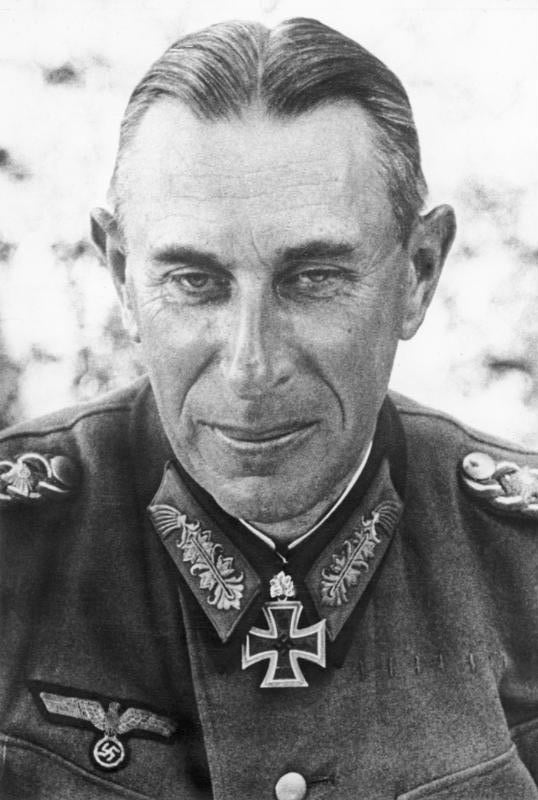
In March, 1943, he served as commander of the 2-th tank army. He succeeded in capturing with his idea - at the beginning of 43 of the year, cutting off the Kursk Bulge - Field Marshal-General H.G., commander of the Army Group “Center”. von Kluge. Until the very end, Kluge remained the most ardent supporter of the Kursk salient encirclement plan. Schmidt, Kluge and other generals managed to convince Hitler that the attack on the Kursk Bulge, Operation Citadel, was the best option for the summer offensive. Hitler agreed, but he doubted to the last. This is indicated by his own, alternative plans. For him, the Panther plan was preferable - an attack on Kupyansk.
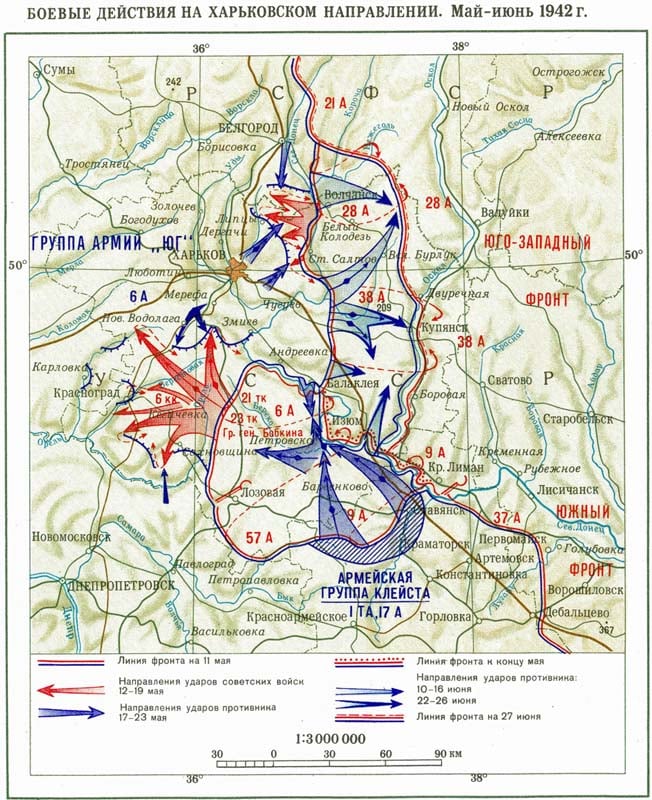
Thus, Hitler wanted to ensure the preservation of the Donets Basin, which he considered strategically important. But the command of Army Group South and its commander, Field Marshal E. von Manstein, were against the Panther plan and convinced Hitler to attack Kursk first. Yes, and the idea of attacking from the north and south, Hitler did not share. He proposed to advance from the west and south. But the command of the army groups "South" and "Center" was against and dissuaded Hitler.
Legend Two.
Until now, some have argued that the operation "Citadel" could have been a success, it would start in May 1943. In fact, Hitler did not want to start the operation in May, since in the middle of May the group of armies Africa was capitulated. He feared that Italy would leave the Axis and the allies would attack in Italy or Greece. In addition, the commander of the 9 th army, which was supposed to attack from the north, Colonel-General Model explained that the army did not have sufficient forces for this. These arguments were enough. But even if Hitler wanted to attack the 43 in May, it would be impossible. I will remind you of the reason that is usually overlooked - weather conditions.
When conducting such a large-scale operation, the troops need good weather, which is clearly confirmed by the above photo. Any prolonged rain turns the paths of movement in Russia into an impassable swamp, and this is exactly what happened in May of the 43. Heavy rains in the first half of the month led to difficulties in traveling in the GA “Yug”. In the second half of May, it poured almost continuously in the “Center” GA band, and practically any movement was impossible. Any offensive during this period was simply not feasible.
Legend three.
New tanks and self-propelled guns did not justify the hopes placed on them. First of all, they mean the tank "Panther" and the self-propelled gun "Ferdinand".
By the way, at the beginning of 43, Ferdinands were considered assault guns. Indeed, the first use of "Panther" was disappointing. The vehicles suffered a mass of “childhood diseases”, and many tanks failed for technical reasons. But the great losses of "Panther" can not be explained only by the imperfection of technology. Much more important was the tactically incorrect use of tanks, leading to unnecessarily large losses. The situation with Ferdinands looks very different. Many sources speak of them disparagingly, including in Guderian’s memoirs. They say that this car did not meet expectations. Reports from the parts suggest otherwise. The troops admired the "Ferdinand". Crews considered these machines practically "a guarantee of survival." The traffic police of the 9 Army notes 09.07.43: “... It should be noted the success of the 41 tank corps, which is largely due to Ferdinands ...”. You can read other similar statements in my book, coming out in 2017 year.
The fourth legend.
According to this legend, the Germans “gave themselves up” to the outlined victory at Kursk. (Translator's note: the word “verschenken” is used in the original - literally “give away” and I did not pick up another translation as “give it myself.” Slug_BDMP). Allegedly, Hitler gave a premature order to stop the offensive due to the landing of the Allies in Sicily. This statement is first found in Manstein. Many still stubbornly adhere to it, which is fundamentally wrong. First, Hitler stopped the attack on Kursk not due to the landing on Sicily. To the north of Kursk, the offensive was interrupted due to the Soviet offensive on the Eagle, which began on 12.07.43, which on the first day led to breakthroughs. On the southern arc of the arc, the offensive was stopped on July 16. The reason for this was the Soviet offensive on the Donets Basin, scheduled for 17 on the 10th.
This offensive, which is still ignored, was the beginning of a grand battle for the Donets Basin, in which the Soviet Army engaged almost 2000 tanks and SPGs.
The map shows a Soviet plan that failed. This offensive ended for the Soviet side with a heavy defeat. But the reason for this was the fact that Manstein was forced to use the tank formations that participated in the offensive in the Belgorod area, including the very strong SS 2 tank corps, to repel it. In addition, it should be noted that the operation "Citadel" and without the withdrawal of troops to other sectors of the front could not end successfully. The commander of the 4 Tank Army, Colonel-General Got, on the evening of July 13, declared to Manstein that it was impossible to continue the offensive. It failed in the south and north, and it was clear to all participants.
The fifth legend.
The Wehrmacht suffered unacceptable casualties near Kursk, which the German side could have confined to in the summer of 43 in the defense. This is also not true. Firstly, the Wehrmacht did not have the opportunity to remain on the defensive and to maintain strength. Even if the Wehrmacht remained on the defensive, the Red Army would still conduct its offensive, and heavy fighting would be inevitable.
Secondly, although the Wehrmacht’s casualties in the Citadel offensive were higher than in subsequent defensive battles (this is because the troops were forced to leave the shelters and break through the deeply echeloned Soviet defenses), but the tank losses were higher in the defense phase battles This is because the attacker can usually take out the damaged equipment, and during the retreat he is forced to throw it.
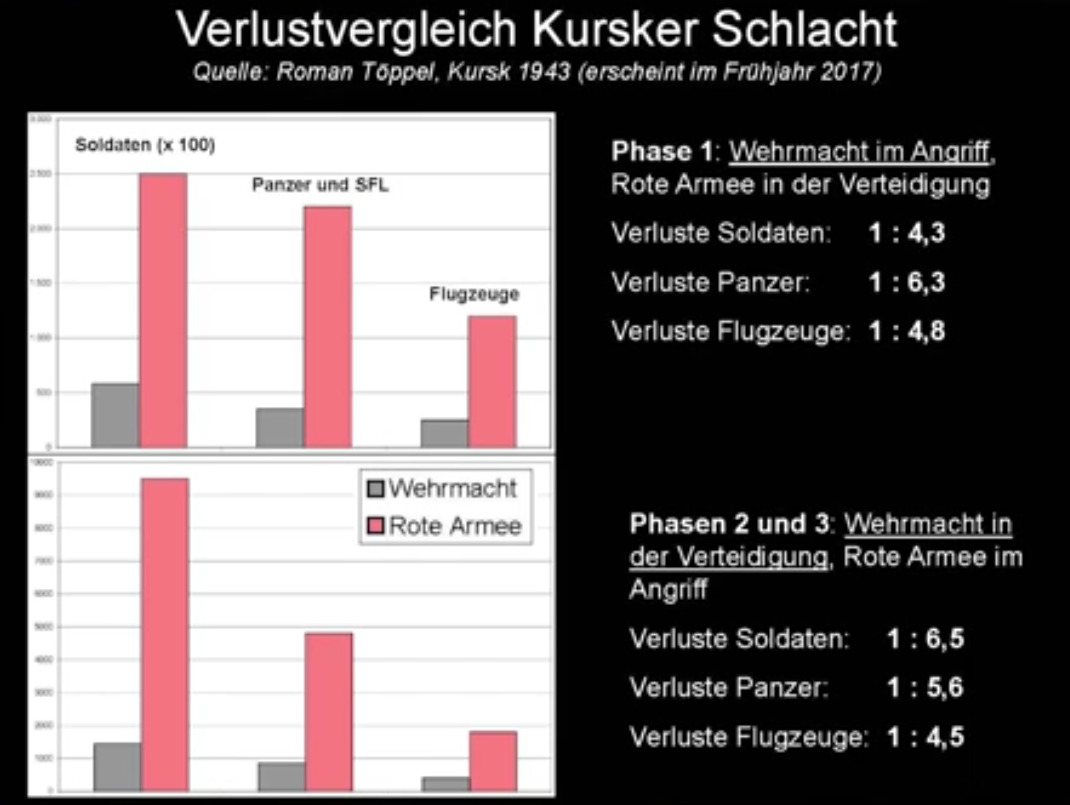
If we compare the losses in Operation Citadel with other battles on the Eastern Front, then the losses do not look too big. In any case, not as they are.
The sixth legend.
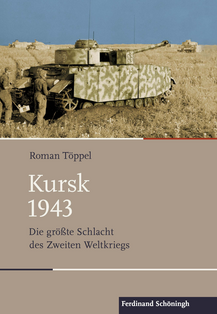 The Battle of Kursk is presented by the Soviet side as the third decisive battle of the Second World War. Moscow-Stalingrad-Kursk. Even in many recent Russian studies, this statement is repeated. And many Germans with whom I had to communicate, declare that Kursk was the turning point of the war. And he was not. There were events that had a much greater impact on the course of the war. This includes the US entry into the war, the failure of the two German attacks on the Eastern Front in 1941 and 1942, and the Battle of Midway, as a result of which the initiative in the Pacific theater passed to the Americans. Kursk was a turning point in the sense that it became clear to everyone that the war in the east had finally rolled back. After the failure of the summer offensive, not only Hitler, but also many Germans, it became clear that it was impossible to win the war in the east, while Germany was forced to wage war on several fronts.
The Battle of Kursk is presented by the Soviet side as the third decisive battle of the Second World War. Moscow-Stalingrad-Kursk. Even in many recent Russian studies, this statement is repeated. And many Germans with whom I had to communicate, declare that Kursk was the turning point of the war. And he was not. There were events that had a much greater impact on the course of the war. This includes the US entry into the war, the failure of the two German attacks on the Eastern Front in 1941 and 1942, and the Battle of Midway, as a result of which the initiative in the Pacific theater passed to the Americans. Kursk was a turning point in the sense that it became clear to everyone that the war in the east had finally rolled back. After the failure of the summer offensive, not only Hitler, but also many Germans, it became clear that it was impossible to win the war in the east, while Germany was forced to wage war on several fronts. At the end R.Töppel presents his new book: “Kursk 1943: Die größte Schlacht des Zweiten Weltkriegs“ (Kursk 1943: The Greatest Battle of the Second World War “), which is due out in 2017 year.
- Roman Töppel
- Roman Töppel
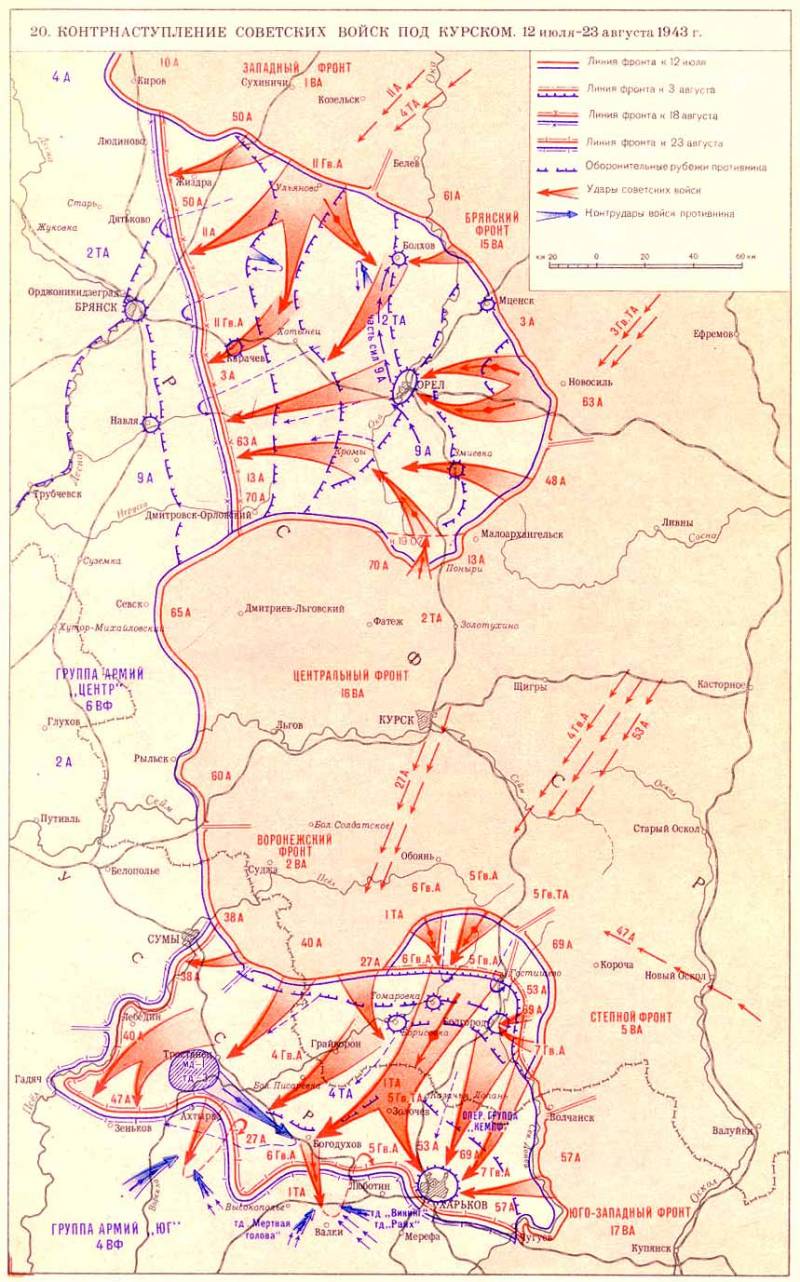
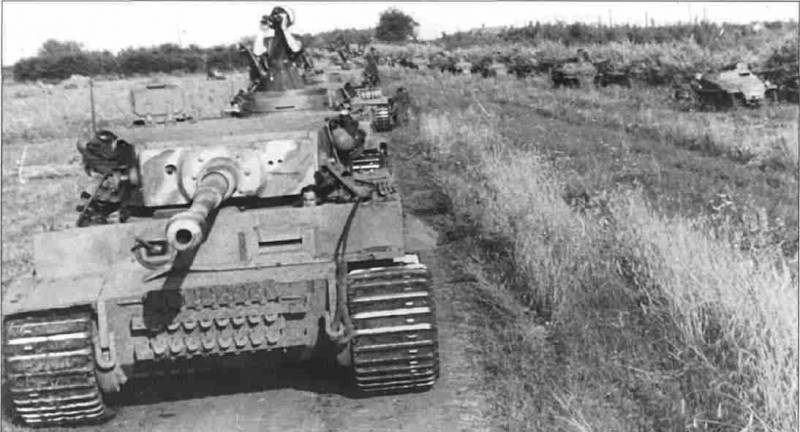
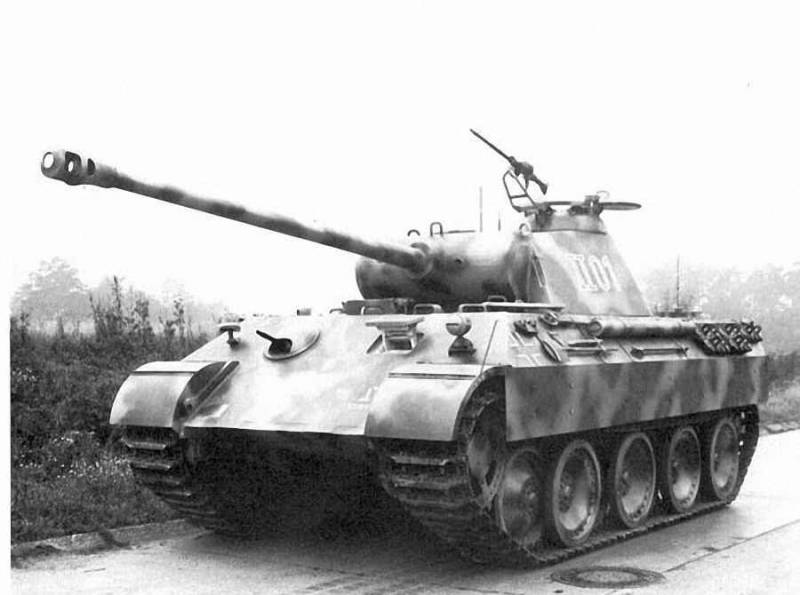
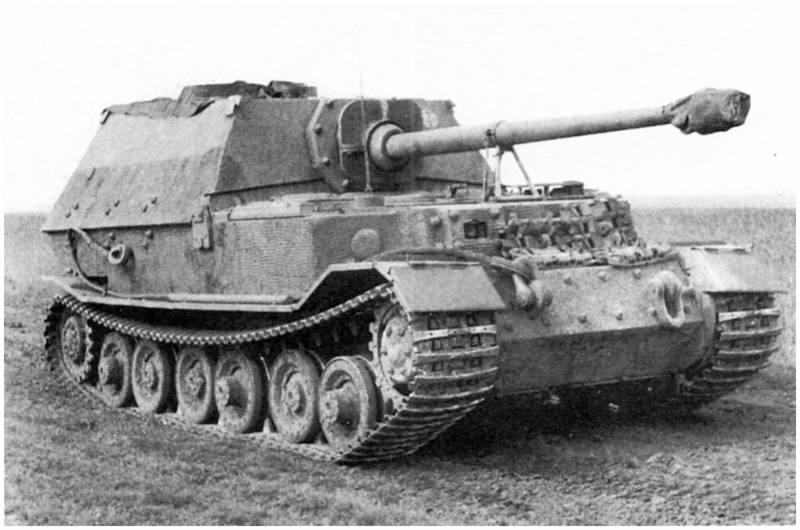
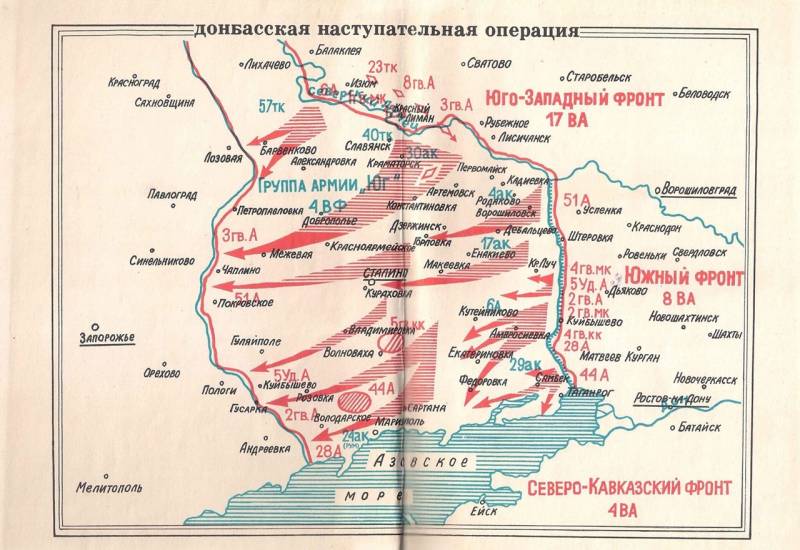
Information